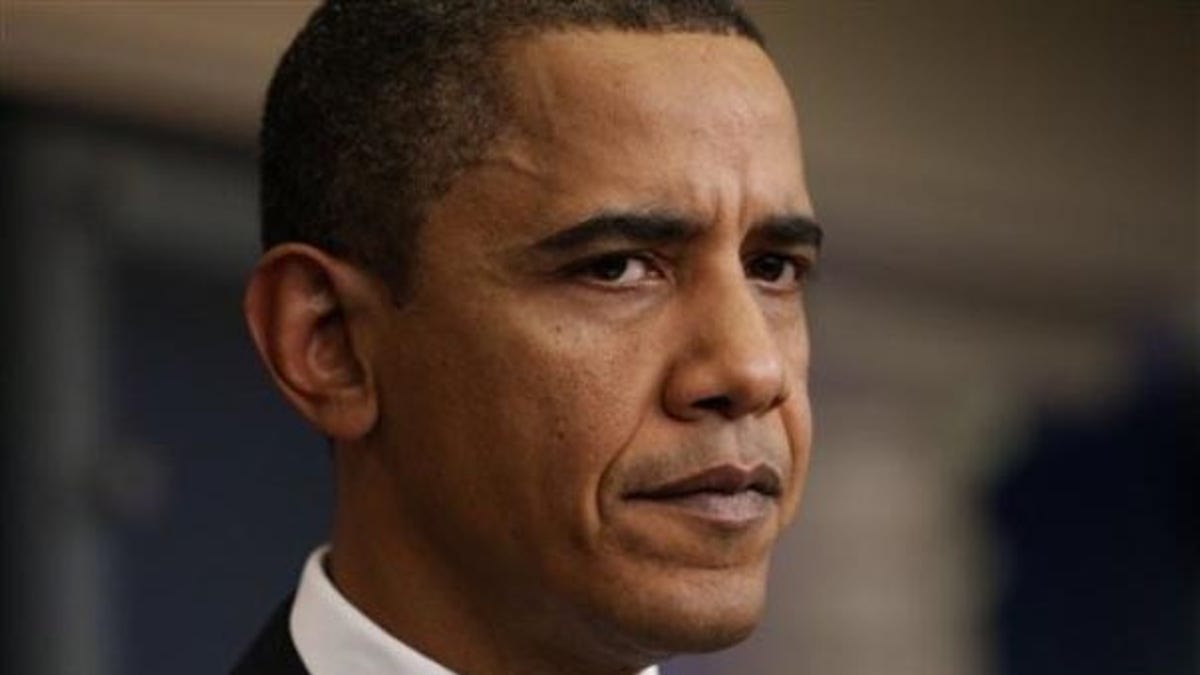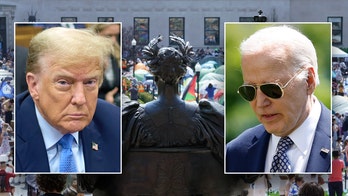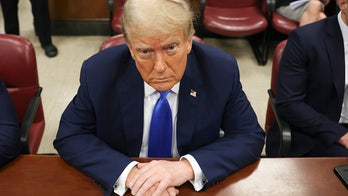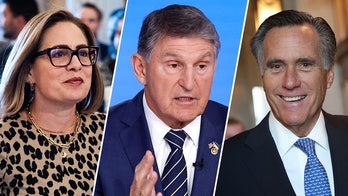
President Obama listens to a reporter's question as he makes an unannounced visit to the James Brady Briefing Room for the daily press briefing, Tuesday, Feb. 9, 2010, at the White House. (AP)
President Obama on Thursday named two Washington old-timers to scour the sofa pillows in search of some change -- enough to bring down the government's massive deficits by 2015.
Former Clinton White House Chief of Staff Erskine Bowles and former Republican Sen. Alan Simpson were introduced as co-chairmen of a debt commission, which will look to reduce the federal budget deficit to 3 percent of gross domestic product in five years.
Obama said they were "taking on the impossible."
"They're going to try to restore reason to the fiscal debate and come up with answers," he said.
The 18-member panel is to include eight Republicans, six named by GOP leaders in Congress and two by the White House.
But the president's commission, issued by executive order, will be a much weaker version of the debt commission Congress recently rejected, meaning the commission's recommendations will not have the force of law.
The commission is likely able to offer up only unpopular ideas -- cutting Social Security and Medicare or raising taxes -- meaning getting Congress to go along will be no picnic. It has to vote them up or down or could just shelve them.
Obama faced a $1.4 trillion deficit last year and the 2010 budget year is likely to be $1.6 trillion. Under his proposed 2011 budget, the president would permit a $1.3 trillion deficit.
Obama said the continuing red-ink trend could "hobble our economy" and "will cloud our future."
But some are skeptical that the commission can be effective.
"If you were to raise taxes, all you're gonna do is weaken the economy, which means less revenue in the future, less asset creation, less asset growth in the future," publishing mogul Steve Forbes, a Republican, told Fox News.
"The only way we're gonna dig ourselves out of this hole, one is a little bit of spending restraint," he said. Forbes argued that $800 billion could be saved off the bat from not spending the money from the financial bailout fund called the Trouble Asset Relief Program, or TARP, and from what remains of the $787 billion stimulus package.
"Reducing tax rates would get the economy moving, which would mean a better housing market, better stock market," he said. "And then, sensible reforms on health care and Social Security. It's not that hard to do. But Washington just loves to spend."




